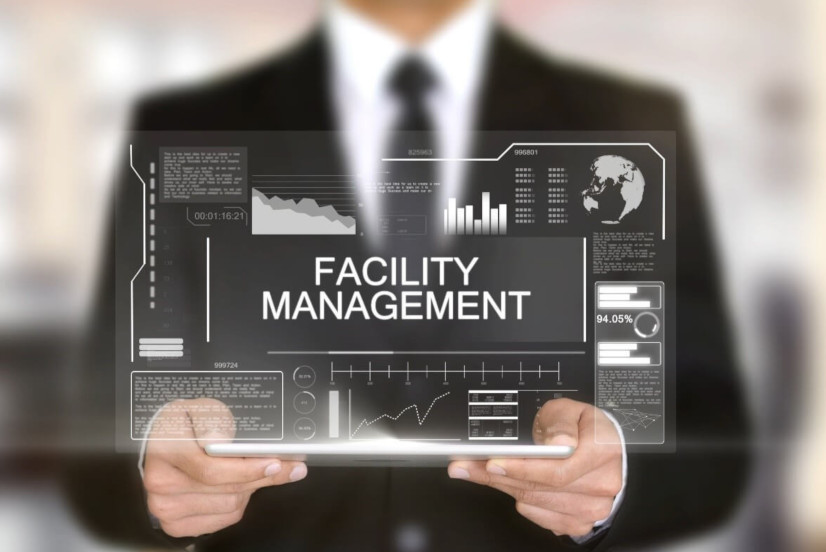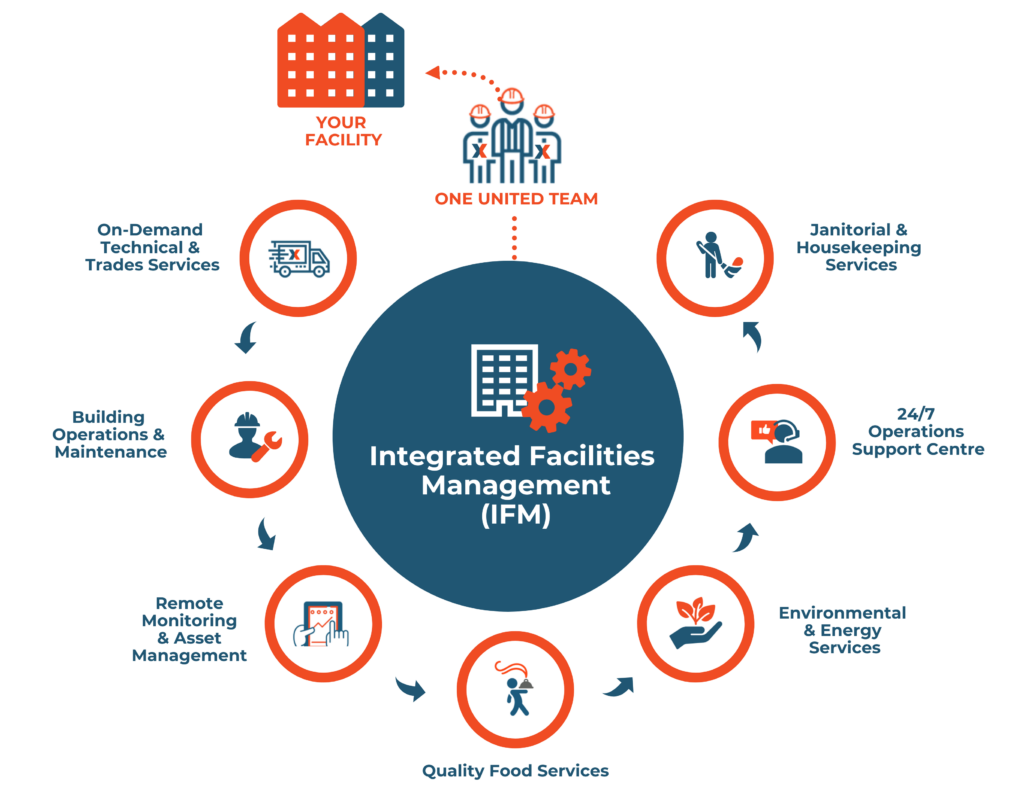Trick Patterns Forming the Future of Facility Monitoring in 2024
As we look in advance to 2024, the landscape of center monitoring is positioned for significant makeover, driven by a number of crucial patterns. The integration of clever structure technologies and a shift towards data-driven decision-making assurance to improve operational efficiency while focusing on sustainability in method.
Smart Structure Technologies

Smart building technologies include a wide array of systems, consisting of smart lights, heating and cooling controls, and safety and security systems. By incorporating these systems, facility supervisors can check and adjust criteria in real-time, causing considerable decreases in power waste and operational expenses. Smart sensing units can spot occupancy levels and change lighting and temperature as necessary, guaranteeing that energy is only utilized when necessary.
Moreover, these modern technologies help with improved information collection, allowing organizations to track use patterns and determine possibilities for further improvements. The execution of wise building modern technologies not only adds to sustainability objectives but additionally creates healthier work environments that can boost staff member performance and fulfillment.
As we relocate into 2024, the fostering of smart structure modern technologies will likely speed up, reflecting a more comprehensive shift in the direction of more smart, receptive, and lasting center monitoring techniques.
Data-Driven Choice Making
Progressively, companies are leveraging data-driven choice making to improve center management techniques. By utilizing information analytics, center supervisors can acquire actionable understandings that considerably enhance operational performance and resource allocation. The assimilation of sophisticated innovations, such as IoT sensing units and real-time tracking systems, enables the collection of huge quantities of data on structure efficiency, occupancy rates, and energy intake.
This riches of information enables center supervisors to identify fads, forecast upkeep requirements, and proactively address concerns prior to they intensify. For circumstances, predictive analytics can forecast equipment failings, minimizing downtime and repair work prices. Furthermore, data visualization devices promote better interaction among stakeholders, ensuring that informed decisions are made collaboratively.
In addition, data-driven methods boost critical preparation by making it possible for center supervisors to assess the performance of existing techniques and make educated options regarding financial investments in technology or framework. As organizations significantly prioritize operational excellence, data-driven choice production is poised to come to be a foundation of successful facility monitoring methods in 2024 and past. Inevitably, the ability to utilize data efficiently will encourage organizations to develop more efficient, productive, and resilient facilities.
Sustainability and Eco-friendly Practices
The emphasis on data-driven decision making basics naturally lines up with the expanding focus on sustainability and eco-friendly practices within center management. As companies progressively prioritize environmental duty, facility managers are leveraging analytics to maximize resource use, minimize waste, and minimize carbon impacts. This strategic method allows the integration of energy-efficient systems, such as LED lighting, smart heating and cooling controls, and renewable resource sources into facility procedures.
Additionally, the application of sustainable techniques expands past power intake. Center managers are taking on environmentally Get the facts friendly products and advertising reusing campaigns to develop a round economy within their centers. This not only boosts the ecological profile of the company yet additionally promotes a culture of sustainability among staff members.
Compliance with ecological guidelines is one more vital facet driving the fostering of eco-friendly methods. By making use of data analytics, center managers can keep track of compliance metrics and identify areas for enhancement, ensuring adherence to international and neighborhood sustainability requirements.
Crossbreed Job Designs
A substantial shift in the direction of crossbreed job versions is improving the landscape of facility monitoring in 2024. This standard incorporates in-office and remote job, demanding a reevaluation of room use, source allotment, and employee interaction strategies. Organizations are increasingly identifying the significance of flexible offices that accommodate diverse requirements and choices.
Facility managers have to adjust by applying flexible office designs that support collaborative initiatives while giving areas for focused job. This includes the integration of modern technology to facilitate smooth interaction and collaboration among remote and in-office workers. Smart structure services, furnished with sensors and analytics, permit for real-time tracking of space use, allowing organizations to optimize their settings effectively.
Additionally, hybrid work models stress the need for efficient center administration that prioritizes employee experience. In significance, the hybrid job design is revolutionizing center management, encouraging a proactive technique to satisfy the advancing demands of the workforce.
Boosted Occupant Health
As organizations accept hybrid work designs, an increased focus on passenger wellness is coming to be integral to facility management approaches. Facility Management. This change identifies that a pleased and healthy and balanced labor force straight influences efficiency and retention rates. Center supervisors are currently focusing on environments that advertise physical and mental health, integrating components such as all-natural lighting, biophilic layout, and accessible wellness sources
Innovation plays a crucial duty in this development. Smart building systems can check ecological elements and change settings in real-time, guaranteeing optimum convenience levels - Facility Management. In addition, comments devices, such as occupancy sensing units and employee surveys, enable facility supervisors to continually fine-tune wellness campaigns based on occupant needs.

Verdict
In 2024, the future of center administration will be considerably influenced by the combination of basics smart building innovations and data-driven decision-making, promoting improved functional effectiveness. These patterns collectively underscore the developing landscape of facility monitoring in reaction to modern challenges and possibilities.
Facility supervisors are promoting and adopting environment-friendly materials recycling campaigns to develop a round economic situation within their centers.A significant change in the direction of hybrid job versions is improving the landscape of center management in 2024.Moreover, crossbreed job versions highlight the need for reliable center management that prioritizes staff member experience.As companies welcome hybrid job designs, a heightened focus on occupant health is becoming integral to facility management techniques.In 2024, the future of center administration will be substantially affected by the combination of smart building innovations and data-driven decision-making, cultivating boosted operational effectiveness.
Comments on “Comprehensive Overview to Facility Management for Services”